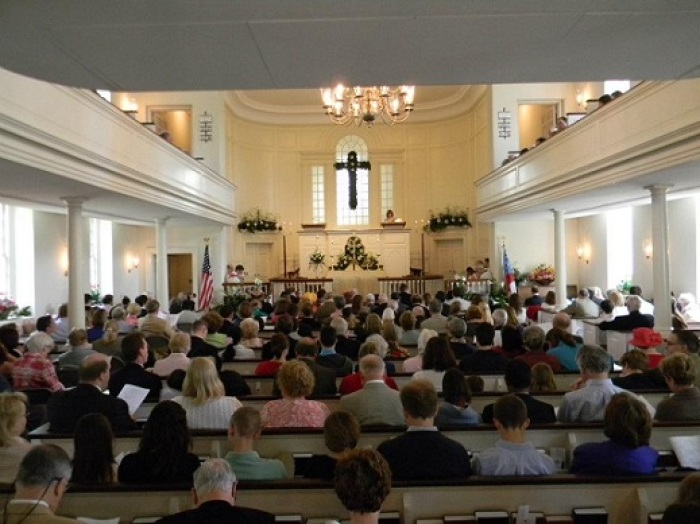The Decline of Decline? Alarming Rate of Mainline Protestants Leaving Church May Be Slowing Down

There has been a lot of attention paid lately to the alarming numbers of a decreasing membership in mainline Protestant denominations in the United States in recent years.
Denominations like The Episcopal Church and Presbyterian Church (USA) have annually reported losses in membership and attendance figures for their churches.
However, the denominations are not losing members at as high of rates as in 2013, according to their spokespeople.
Dr. C. Kirk Hadaway, officer of congregational research with The Episcopal Church, told The Christian Post that while the most recent numbers for Episcopal congregations were "a cause for concern," they are also "considerably reduced from those experienced during the previous 8 years."
"During those 8 years losses were exacerbated by conflict in many congregations and the attempted efforts of several dioceses to disaffiliate," said Hadaway. "Financially, income among congregations has rebounded after the worst years of the recession, but the increases in 2011, 2012 and 2013 are slightly below the rate of inflation."
Hadaway's comments come not long after the Episcopal Church's Office of Research released the latest data on attendance and membership for the mainline Protestant denomination.
From 2012 to 2013, the denomination lost approximately 27,000 members, putting the total number of members in their domestic dioceses to about 1.866 million.
In 2009, in its domestic dioceses the church body had approximately 2.006 million members, or nearly 200,000 more than in 2013.
Regarding the losses, Hadaway told CP that the reasons are "complex" and also "not altogether the result of what Episcopal congregations have done or have not done."
"Our members have much higher levels of education on average than the general population. The result is fewer births than deaths among our constituency," said Hadaway. "There is also the legacy of conflict, which although it has abated greatly, remains a source of distraction and undermines the mission of congregations in some communities."
The Episcopal Church is not the only denomination experiencing decline that appears to be seeing a decrease in their annual losses.
In May, Presbyterian Church (USA) released their figures for 2013, revealing yet another year of losses for members and congregations. By the close of 2013 PCUSA membership was approximately 1.76 million, compared to approximately 1.84 million by the last day of 2012.
The number of PCUSA congregations also decreased during 2013. There were 10,038 churches in 2013, versus 10,262 in 2012.
The Rev. Gradye Parsons, stated clerk of the PCUSA General Assembly, said in a statement released in May that he saw hope in the numbers since the overall decline was smaller when compared to previous years.
"Yes, the numbers reflect a decrease in active members in the denomination … But the numbers also illustrate fewer losses than the previous year. The membership declined by 89,296 in 2013, compared to 102,791 in 2012," said Parsons.
Regarding the 2013 Episcopal Church figures, there were those who questioned the accuracy of the data given that the statistics included the Episcopal Diocese of South Carolina.
This appeared peculiar given that most of the diocese had voted to leave the denomination over theological differences and reported mistreatment of their bishop, the Rev. Mark Lawrence.
Jeff Walton, Anglican Program director with the Institute on Religion and Democracy told CP in an earlier interview that the decision to include the entirety of the breakaway diocese was "baffling."
"The decision of The Episcopal Church in South Carolina to include members and attendees from the departed diocese in their own numbers is baffling," said Walton. "In effect, departing Episcopalians are being told 'you can't leave' when they are already well out the door and no longer within earshot."
Hadaway of The Episcopal Church explained to CP that the diocesan numbers were included because of how the denomination figures the data of churches that do not report their figures for a given year.
"If a church does not report, its data are carried over from the prior year. This is how we handle non-filing congregations, regardless of their reason for not reporting," said Hadaway. "The decisions regarding the congregations in South Carolina were made in 2014, and so for 2013 the data for the non-reporting congregations in South Carolina were carried over. That will not be the case for 2014."




























